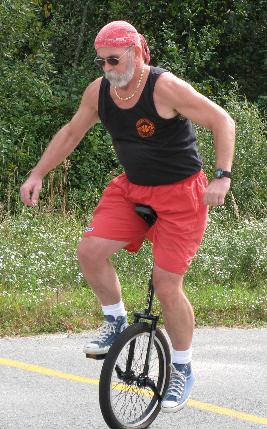|
Successful Buoyancy Control
begins with:
"A Symbolic Amputation of the HANDS!"

Using
hands "for propulsion or stability" is the....
HALLMARK of a
Substandard Diver!
We
mentor fundamental skills; buoyancy control and frog kick. Those are
the skills we do best. Those are the skills that we share with other
divers.
When we see someone sculling it isn't about us finding a GOTCHA Moment!
But we still know what that diver doesn't know.
He/she....just told us with HAND SIGNALS!
|
More than just a GOTCHA!
"LOOK....NO HANDS!" has
been our motto since we can't remember when. Now we read more and more
stuff about not using hands while diving. This is a new phenomenon! Some of the explanations, that we have read, are
quite imaginative; like how "dangerous" your hands are to others i.e.
"you might knock someone's mask off" or "the fish won't like you" if you
are always waving your hands around.
We
don't post on the message boards and seldom visit there unless we are
following a trail of a specific subject. We do know there is a debate.
A few people believe, as we do, that any amount of Sculling should be TABOO.
Others get really offended because they feel like "a little bit" of
sculling or sculling "once in a while" should be permitted.
HERE'S WHY YOU SHOULD NEVER SCULL:
Not because you offend the fish and not because you
could disrupt your
buddy's gear. AND not for the plethora of other reasons that we
read
about
on the internet. Yes it does waste energy and gas but experts who feel
the need to index a longer list in order to make it appear that they
know more about the subject are all wet. You shouldn't SCULL
because it forces you to
learn different and more productive methods of negotiating , what
is for us, an alien world. Learn to use your breathing and exploit the
full potential of your fins.
These are the componants that identify a
truly skilled diver. SCULLING is a crutch! A crutch
that is not very efficient. It is wasted effort...IT'S THAT SIMPLE
and if you are trying for multiple creative reasons to explain or index
why hands shouldn't be employed for swimming while diving, you
may have missed the point?
We
know, when we see someone scull, that they don't know what we know
about Buoyancy Control! We don't know it so that we can shame them or
blow a whistle or a horn and declare A FOUL!
|
"THE BICYCLE & UNICYCLE ANALOGY"
The
guy on the unicycle (right) is a much better Buoyancy MENTOR than he is
a unicycle rider. He was already old when he started teaching himself to ride.
The bad news is that the falls numbered in four figures. The good news
is that most falls end with the "would be" rider on his/her feet.
SO....this "geriatric dive instructor" persisted and, although it wasn't
always pretty he became a unicycle rider. His longest ride (ever) was
900 feet. Staying up for 50 feet qualifies as a ride.
The point is, of
course, that in order to make an educated comparison of two different
activities it is best to have some experience with both. We believe
that standard has been met.
SO....Learning
to ride a unicycle is not easy. It is much more difficult than learning
to ride a bicycle. When the guy to the right was learning to ride a
bicycle, his father's 1951 De Soto was in the driveway so it is possible
that he might have trouble recalling that task. The point is: Learning
Exceptional Buoyancy Control SKILLS: IS NOT EASY! Learning to ride a unicycle: IS NOT EASY!
THE DIFFERENCE:
Most people, even people who can't ride a bicycle and more people who can ride
a bicycle have no trouble recognizing the difference in skill level
that is required to ride on just one wheel. "Almost Everyone"
understands unicycle skills when they see them.
NOT SO: With Buoyancy Control!
FIRST
there are few examples, of good buoyancy skills, within the current
SCUBA Instructor Corps, because substandard SCUBA Fundamental
Skills are common in Recreational Diving! Most divers want to
believe that their
Buoyancy Control Skills are: "GOOD ENOUGH" for them to be able to pursue any path to glory that they choose.
|

OF COURSE THE TRUTH IS:
There's no such thing as Buoyancy Control SKILLS that are: "GOOD ENOUGH"
|



